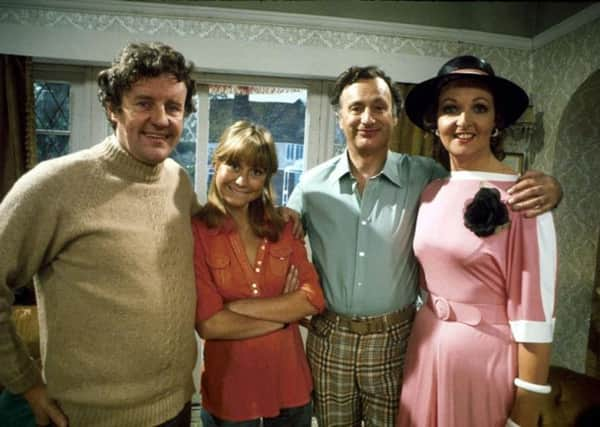Jim Duffy: There's more to the Good Life than technology
This article contains affiliate links. We may earn a small commission on items purchased through this article, but that does not affect our editorial judgement.


Tom and Barbara Good decided to leave the so-called rat race behind and go for self-sufficiency. They reared pigs, chickens and a goat in their back garden and did all they could to preserve cash, while generating their own food.
Meanwhile, Margo and Jerry Leadbetter next door are still in the rat race making good money and keeping up with the Joneses: new car, golf club, clothes and fancy restaurants. The acting from all four actors is just brilliant and is still funny to watch. But there is a lesson here that we can use for many who want to start a business or indeed invest in one.
• READ MORE: Technology news
Advertisement
Hide AdAdvertisement
Hide AdMargo Leadbetter is a likeable snob, but a snob all the same. I’m pretty convinced that she would only invest in tech these days, as she would see tech as a cut above the rest and something that she could impress her other neighbours and friends with.
And herein lies the problem with the approach that many may indeed take when thinking about starting or investing in a business. I have to say that as long as it’s legal, then it should not matter what type of business you want to start.
I was with an entrepreneur in London last week, who told me he was building a tech business just to sell it on. When I asked if he was passionate about it or the painpoint it solved, he simply replied, “I want to be known as a tech entrepreneur – it will make me stand out.” With whom, I thought? I also hear many investors say that they will only invest in tech. Why? Because everyone else is and it’s trendy?
There is a whole swathe of tremendous sectors and businesses to start and invest in. Sure, use tech as an enabler and it will help boost things, but don’t just stick to tech for the sake of it. I’m really interested and doing some work around the predictability of success in a business founder.
To be honest, it fascinates me and the more business builders I meet, interview and work with, the more I am convinced that it would not matter what type of business is involved. If the founder has got what it takes, then they will be pretty good at almost all types of business. This is why when someone presents themselves as a non-tech business, that has great potential with a founder with great potential, why would you discount it? Is it because we are tech snobs?
I almost fell into the trap myself last week as I interviewed a business. All the questions I asked were answered. It had been properly validated with a revenue model that worked and a couple of co-founders who had complementary skill sets and experience. But, it was not a tech-style business. So what does one do?
Advertisement
Hide AdAdvertisement
Hide AdWhen Duncan Bannatyne was punting ice cream out the back of a van would you have backed him then before it became so hugely successful? Or if he had rocked in with a health-tech product would you have been more open to get to your wallet out?
There is a plentiful supply of great opportunities out there for start-ups and investors that have tech powering them. Simply looking around as you walk down the high street throws up some meaningful insights. Franchising for example is still all over the place and a great way for business builders to build quickly. Who would not say no to a 100-franchisee model across the UK with opportunity to sell master franchises globally?
Having a spread bet on a portfolio of business builders in lots of sectors is not a bad idea. It spreads the liquidity around so many more new starts who are just great people, get a real chance. Crowdfunding for one has been remarkably good at opening out so many more investment opportunities to a wider market.
Who knows, maybe Margot Leadbetter would have taken a punt on a food entrepreneur these days via crowdfunding. Let’s give all keen business builders a fair chance.
• Jim Duffy is co-founder of The Moonshot Academy and author of Create Special